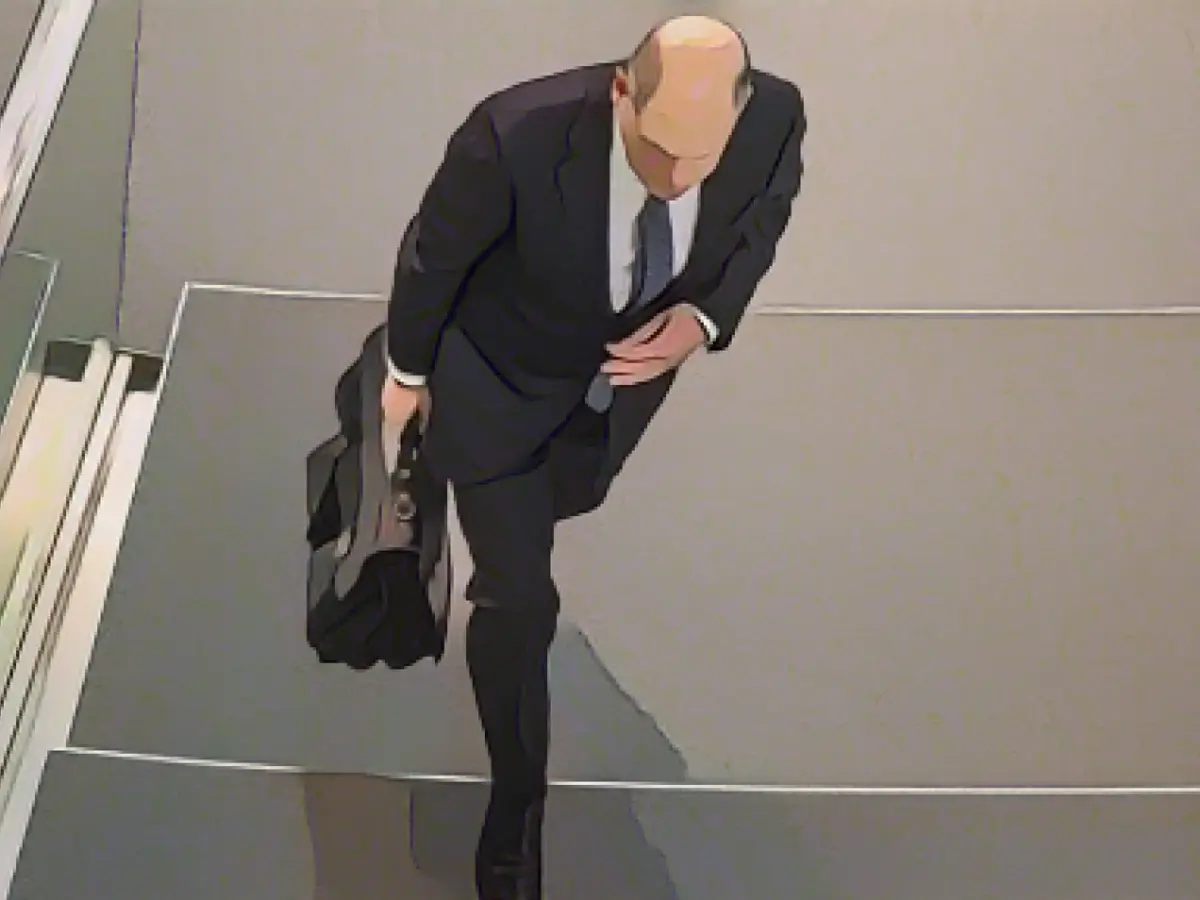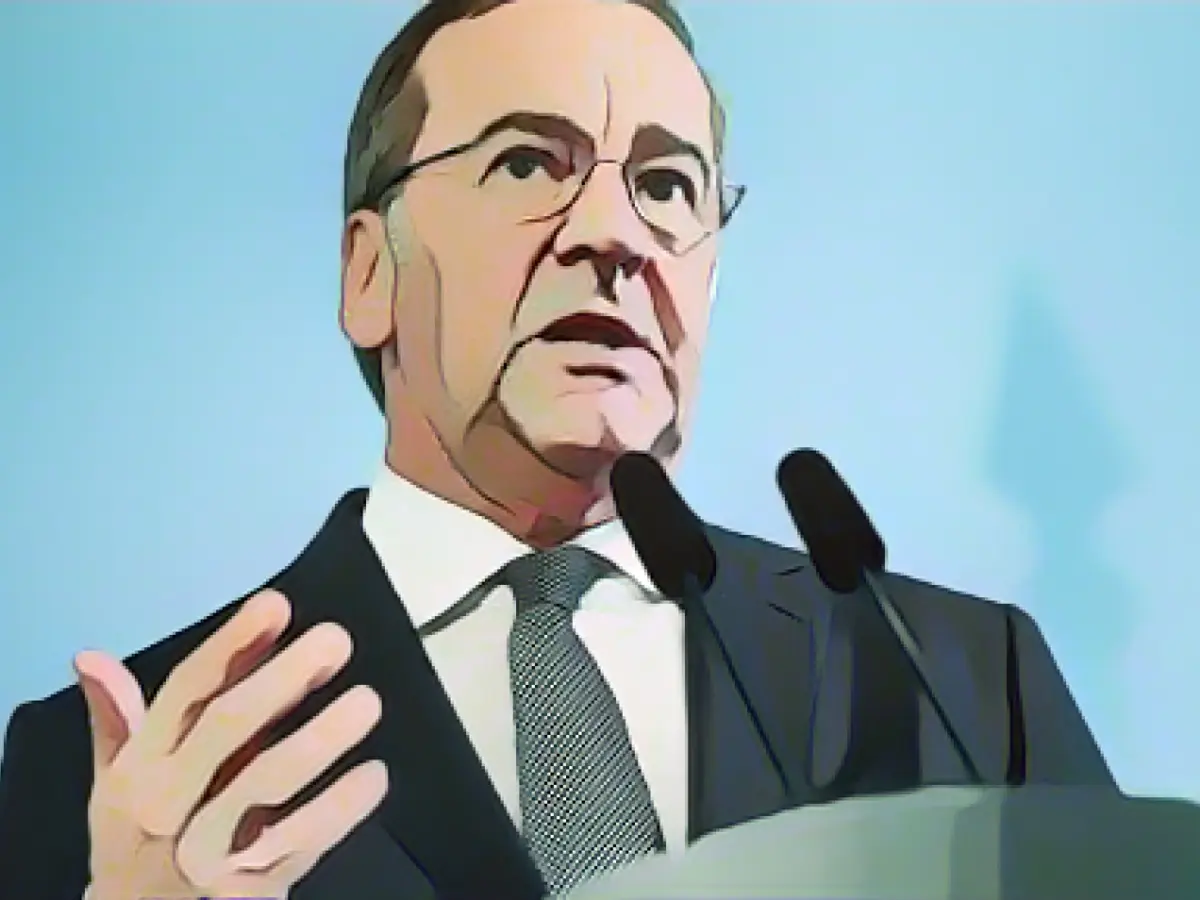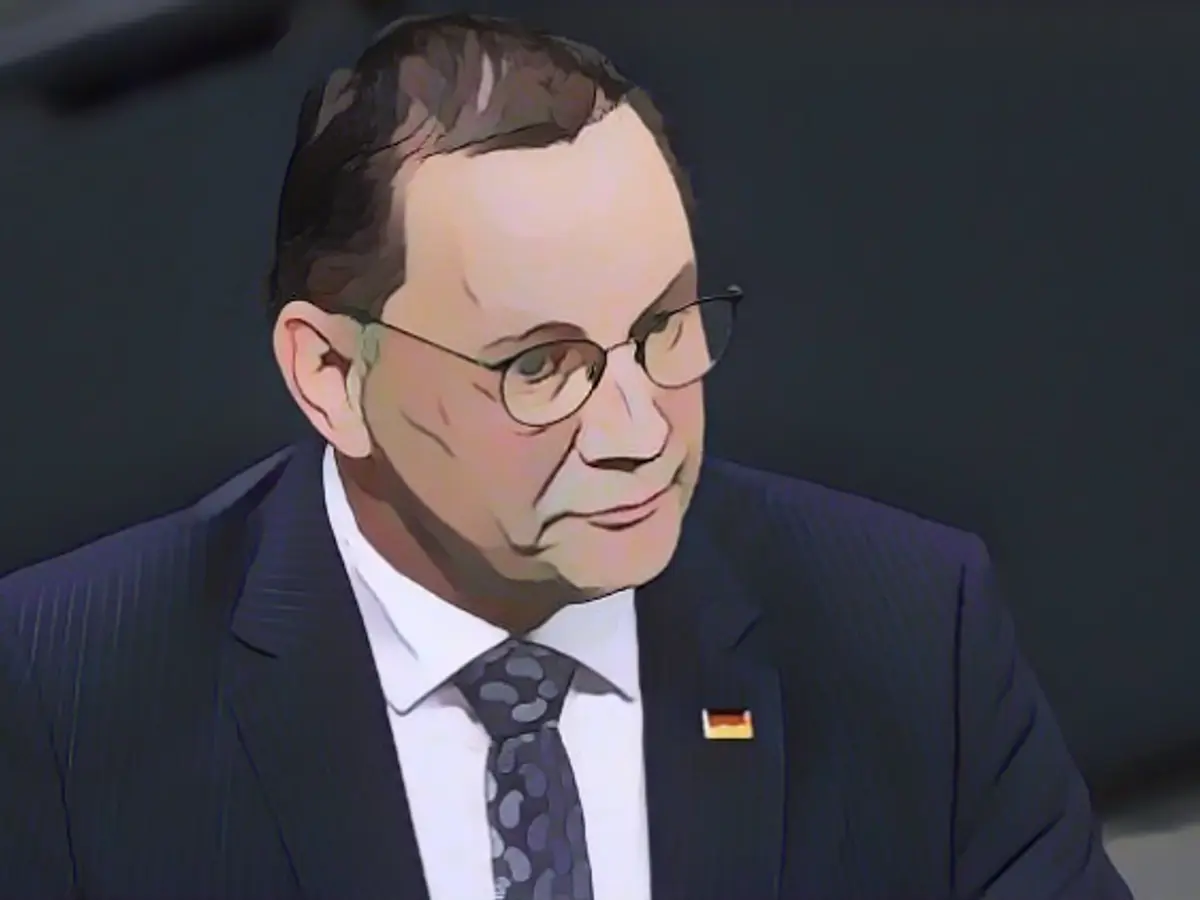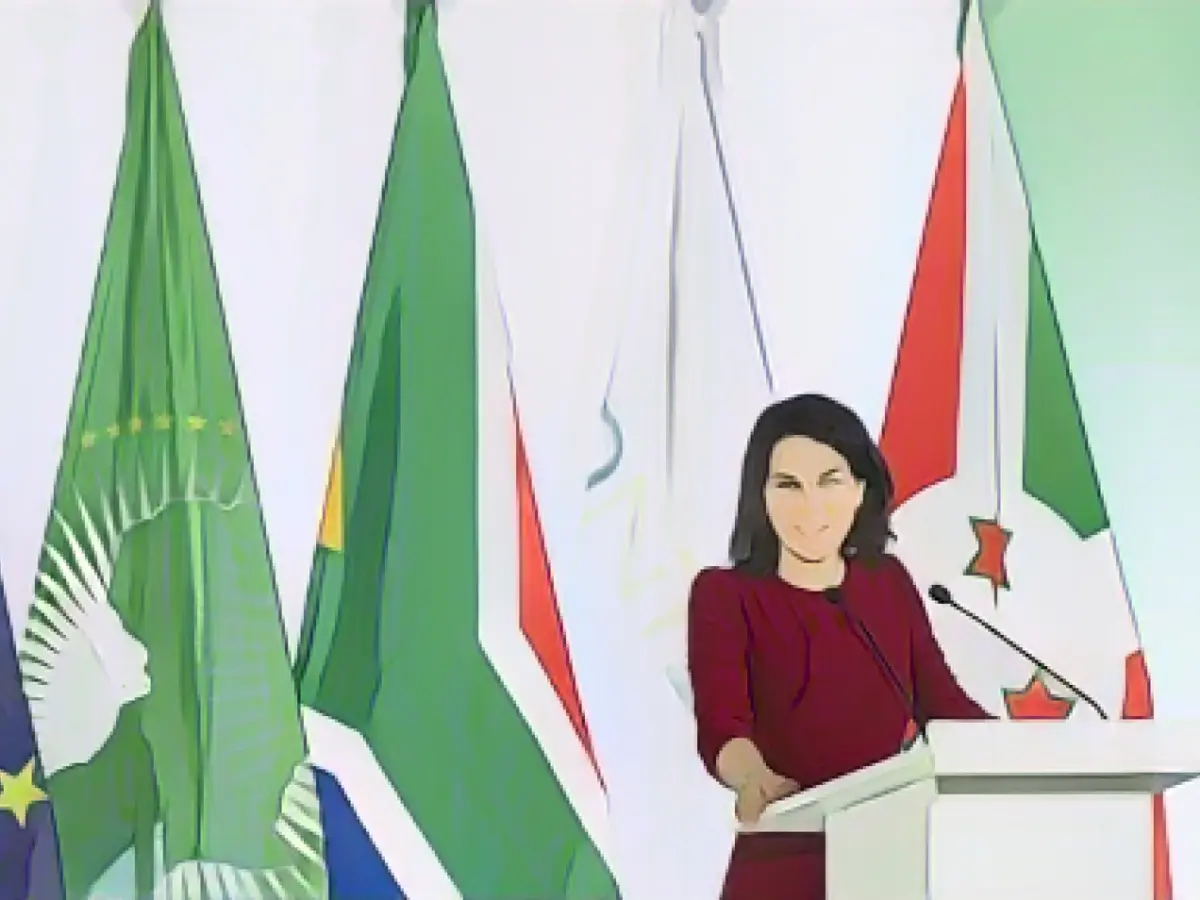Time's ticking for the Federal Government to seal the budget deal: Possible outcomes
With each passing minute, the pressure on the traffic light coalition leaders to plug the budget's billion-euro gap intensifies. If they wish to approve the 2024 budget, a resolution must be found promptly.
Chancellor Olaf Scholz (SPD), Finance Minister Christian Lindner (FDP) and Vice-Chancellor Robert Habeck (Greens) are pulling out all the stops to approve the 2024 budget as soon as possible, said Foreign Minister Annalena Baerbock (Greens). However, she left the possibility of key data being available before the cabinet meeting open.
The Federal Constitutional Court's ruling three weeks ago declared the reallocation of 60 billion euros null and void. The money had been approved as a coronavirus loan, but was intended for investments in climate protection and modernizing the economy. The judges also ruled that the federal government may not set aside loans approved in emergency situations for later years.
As a result, the coalition partners have been battling over the 2024 budget since then. What expenses can still be covered? Where will cuts be made? Or perhaps new loans are the solution? The economy and social associations are left in a state of uncertainty regarding funding programs and promised funds.
Baerbock cautioned, "At a time when crises are piling up, we as strong democracies must demonstrate our capacity to act even in the midst of crises." Right now, anything from a breakthrough to a full-blown government crisis is a possibility. Potential scenarios include:
Austerity measures agreement
Lindner, the FDP leader, advocates for scraping together the necessary funds through a stringent austerity course. He identifies three cost areas: social concerns, including the citizen's income, international aid, and unspecified support programs. The FDP argues that the planned increase in the citizen's income should be reconsidered in light of inflation.
Social Affairs Minister Hubertus Heil rejected this demand, calling it morally irresponsible and unconstitutional to deny assistance to those affected by an adjustment of standard rates. Government spokesperson Steffen Hebestreit added, "I am not aware of any plans within the federal government to change the legal basis."
The SPD and Greens also oppose this approach. Green Party leader Ricarda Lang told the German Press Agency, "The cost of food, energy, school supplies and everyday necessities has risen significantly in recent years." The increase remains warranted.
To reduce climate-damaging subsidies, the Greens propose restrictions on the diesel privilege and the commuter allowance as well as the abolition of the company car privilege. Critics argue that it promotes the sale of large combustion engine cars and benefits upper income groups. However, the FDP is unlikely to support this.
Conclusion: It seems improbable that the coalition government will find enough small-scale savings projects to cover the budget gap through this approach. Abandoning major prestige projects is also unlikely.
Agreement on new emergency loans
The SPD and Greens are in favor of suspending the debt brake next year and taking out more loans. This would require the Bundestag to declare an emergency. One potential justification for this could be the war in Ukraine - allowing for direct support payments without violating the debt brake.
Lindner remains hesitant, partly due to concerns over a potential legal challenge by the CDU/CSU. A lawsuit from the CDU/CSU is highly likely in this situation.
Experts deem the suspension of the debt brake to be a significant risk. Legal expert Hanno Kube claims that the requirements for an emergency resolution increase in duration, as budget legislators can prepare for situations that last longer. This results in financing becoming a regular government task over time.
Conclusion: It is unlikely that the FDP will agree to a suspension of the debt brake without significant savings first.
Reform needed in budget policy
Meanwhile, advisors to Federal Economics Minister Robert Habeck (Greens) are warning of increasing pressure on public finances due to societal aging. At the same time, digitalization and climate-friendly restructuring must be addressed. The minister's scientific advisory board advocates a far-reaching reform of the debt brake in its report.
The advisory board assumes that by 2040, more than half of the federal budget will be required for pensions alone. Yet, funding for important areas such as defense and foreign policy, as well as infrastructure, is also necessary.
Mixed solution with bitter pills for all
The most likely outcome currently is a compromise in which each coalition partner must swallow an unpleasant pill. For example, direct support payments for Ukraine could be exempted from the debt brake with an emergency resolution.
At the same time, cuts could be made to the increase in citizens' income, particularly important to the SPD. The Greens' proposed basic child insurance starting in 2025 is another project that could be affected. Lindner has emphasized that plans for 2024 and 2025 must be considered as a whole.
The tight schedule
The coalition would prefer to have the budget approved and signed off on before the end of the year. The cabinet would then need to approve it during the regular meeting or in the so-called circulation procedure. The budget committee would then have several days to review the documents, potentially completing the review meeting next week. The Bundestag would then meet in the week before Christmas for a special budget week, making a final decision. The Bundesrat could give the green light on December 22.
Another possibility is reaching a political agreement before Christmas, but postponing a vote until January. Scholz could likely live with that as well. It is possible that the budget committee could finalize the budget during an adjustment meeting.
Postponement to 2024
Postponing the budget to 2024 is an option that Lindner and the FDP might consider, especially if there's no longer pressure to make a deal. This would result in a provisional budget at the beginning of January, allowing only essential expenditures. However, the situation could escalate into a full-blown government crisis if no agreement is reached. It is possible that one of the partners might lose their resolve and want to withdraw from the coalition. However, this is not anticipated, as no single party would profit from the collapse of the coalition with their current poll numbers.
Thoughts on addressing the budget crisis can be found in .








